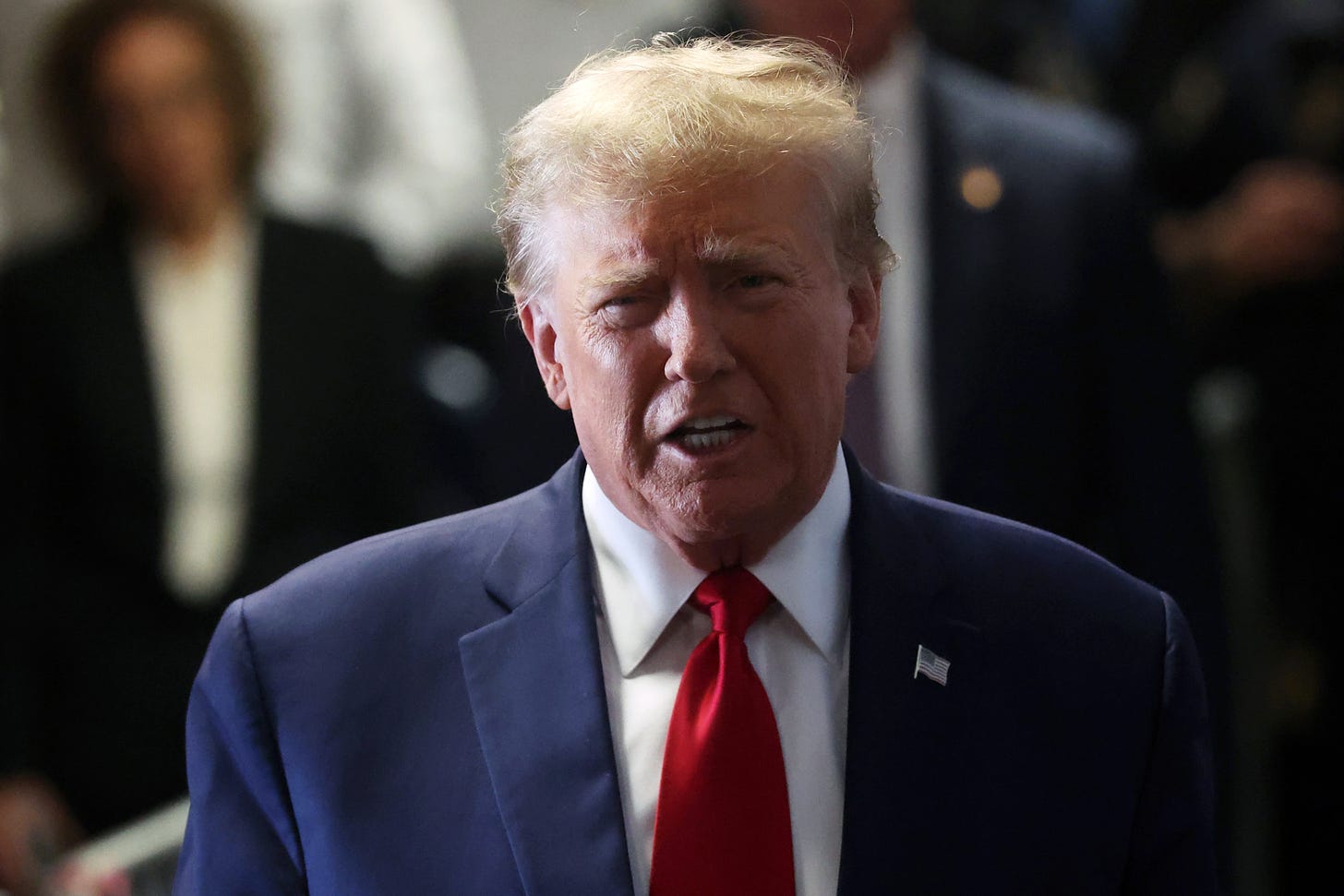Quit With the Excuses, Mr. Trump: Pony Up Your $454 Million Judgment
The former president wants to be seen as a political victim.

ON WEDNESDAY, A NEW YORK APPELLATE COURT denied Donald Trump’s baseless request to reduce by nearly 80 percent the bond he needs to pay to secure, during his appeal, the state of New York’s $454 million civil fraud judgment against him.
Trump has until March 25 to obtain a bond or a loan for the full amount. In the meantime, he has worked overtime trying to distract us from the judgment’s message: that his business modus operandi, like his political persona, is built on lies.
Trump’s campaign of distractions and faux martyrdom was in full swing last Saturday at the Conservative Political Action Conference, where he bizarrely branded himself a “political dissident,” days after he likened himself to Alexei Navalny, Russia’s martyred Putin foe. In an even more “cringeworthy” moment in South Carolina, Trump said that “black people are so much on my side now” because “I’m being discriminated against,” just like them.
Could Trump have possibly given us better post-judgment validation of the New York court’s conclusion that his “complete lack of contrition and remorse borders on pathological”?
Never before has Trump’s business career, based on lies, fraud, and escape from accountability, so seriously met the law, which enforces the opposite—truth and consequences for egregious misconduct. After a 43-day trial with 40 witnesses, including Trump himself, Manhattan Supreme Court Justice Arthur Engoron found “overwhelming evidence” of “intentional, repeated, and persistent fraud.”
Trump’s pattern of “persistent fraud”—for example, falsely tripling the size of his Manhattan apartment, or adding more than $1 billion in phantom value to Mar-a-Lago—triggers the New York statute under which Attorney General Letitia James successfully sued. The statute authorizes a court to award the state defendant’s disgorgement of profits and other relief a court “may deem proper” when someone is found to have engaged in “persistent fraud or illegality in the carrying on . . . of business.”
Trump-friendly commentators have supported the former president’s wild claims of victimhood. Fox News legal analyst Jonathan Turley, for example, asserted that the Trump Organization was “singled out.” But as noted by another Fox opinion writer, the statute has been used nearly 150 times against fraudulent business operators. And notice that Turley does not contest the court’s factual findings of Trump’s vast misrepresentations.
And for good reason. Just try Turley’s pitch of being singled out the next time the Highway Patrol stops you for doing 85 miles per hour when others were also speeding. As Justice Engoron cogently explained: “The common excuse that ‘everybody does it’ is all the more reason to strive for honesty and transparency and to be vigilant in enforcing the rules.”
Prosecutors know that to advance the law’s aim of deterrence, prioritizing the most egregious violators is necessary. Doing so garners public attention that warns others to stay honest. If every businessperson operated the way Trump did, we would not have an economy . . . or much of a country.
UNFORTUNATELY, EVEN SOME COMMENTATORS who should know better have misunderstood the New York verdict and why it matters. New York Times columnist Bret Stephens, for example, a longtime Trump critic, implied last week that Trump should never have been “accused of fraud without any of his creditors complaining of being defrauded.”
But that ‘no harm, no foul’ notion completely misses the point of the New York statute and well-established court precedent cited by Justice Engoron. The law aims to protect the reliable operation of markets by promoting honesty among market participants. Otherwise, allowing lies that, by luck, hurt nobody in one situation risks untold damage in another.
To illustrate, suppose you’re a home buyer seeking a loan. Bank rules require you to earn enough to pay your mortgage, taxes, and living expenses. Because you don’t make enough to qualify, you pay the bank officer to falsely verify your income at double what it is.
Assume the economy remains healthy over the course of your loan, you get promoted and increase your earnings. You pay your mortgage. The bank gets what it wanted.
Now assume instead that two years later, the economy crashes like it did in 2008. You lose your job and can’t pay your loan. The bank has to foreclose, and it loses money on a loan it wouldn’t otherwise have made.
Is there fraud only in the second scenario? No, the misrepresentation is the same in both and so is the misconduct. As Justice Engoron noted, “The next group of lenders to receive bogus statements might not be so lucky.”
HOW ABOUT THE SIZE of the judgment against Trump? Turley and other Fox contributors have called it “confiscatory,” “arbitrary,” and “Stalinist.” Again, they don’t, and can’t, challenge either the court’s monetary judgment calculation or its rationale. The amount of the judgment is directly proportional to the size of Trump’s borrowings based on lies and to his commensurately large illegal profits.
The judgment simply returns Trump to where he would be without his fraud. Forcing disgorgement of such illicit gains and deterring future deception of Trump’s kind are precisely why the New York statute authorizes judges to tailor disgorgement and other remedies to the violator’s misconduct.
It’s each of our jobs—especially intelligent opinion writers in much-read outlets—to call out the truth and not be distracted by Trump’s victim mythology. Otherwise, we’re not just ignoring or even endorsing his business fraud, but also his ongoing fraud on the nation.







